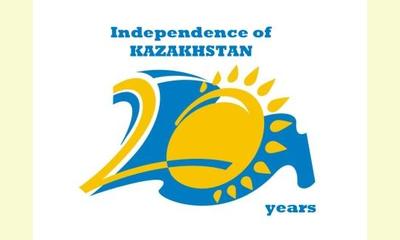|
|
Say no to fear of reincarnation of Soviet Union
an article by Dilyara Tektigul
16th of DecemberÖ Today is 20th anniversary of Kazakhstan. Iím so happy and proud of my country. However, there is some fear in my country that Iím concerned about. Iíd like to share my vision on The Eurasian Union (EAU) which is a proposed economic and political union of Belarus, Kazakhstan, Kyrgyzstan, the Russia, Tajikistan and other Eurasian countries, in particular the post-Soviet states. In particular Iíd like to highlight how some Kazakh people see the future of EAU. The agreement on the Establishment of the Eurasian Economic Commission was a great step on forming EAU and undoubtedly has an important influence on the future of this union.

click on photo to enlarge
As an economist I can say that EAU will have a beneficial effect on the economy of Kazakhstan. But many people feel that it will have a tinge of Soviet Union period.
Personally I am not a Russophobe and donít feel any negativity towards Russian people. Nevertheless, quite often I read in articles and hear from my friends statements like: EAU is a way back to USSR.
If we look on the issue we can see that Kazakhstanís integration with post-soviet countries will affect all sectors of the country. There is a probability that tomorrow again for literacy and education will be meant literacy and education in Russian and in Russia's historical and cultural context, and future generations through advocacy and public education of Russia will once again be inspired by the myth of the inferiority of our language and culture. Economic and political-military dependence inevitably entail cultural assimilation, even more than the one that we already have in Kazakhstan.
One thing comes to my mind is that in a globalized world we can not develop without cooperation. In this case of EAU it is a strategic vector of development. I hold an opinion that in the aim of our countryís prosperity and sustainability the only suitable and best option was establishment of EAU.
I believe that people have to give up prejudges and keep in mind that now we live in independent country of Kazakhstan. It is important to keep in mind that all the decisions within EAU will be done via consensus.
I hope that Kazakh people will get rid of fear of reincarnation of Soviet Union and look ahead with confidence.
|








|
DISCUSSION
Question(s) related to this article:
Direct people-to-people contact and solidarity, How can it be promoted?
* * * * *
Latest reader comment:
The examples from the countries of Central Asia are interesting. †On the one hand, their history under the Soviet Union was not a pleasant one, because solidarity was imposed, sometimes even by force. †On the other hand, the Soviet experience brought together many different nationalities and peoples and made possible many forms of voluntary, non-violent cooperation and solidarity.
An important question for the 21st Century is how this kind of international contact and solidarity can be promoted without involving states and their culture of war. †As it says in the Constitution of UNESCO: "A peace based exclusively upon the political and economic arrangements of governments would not be a peace which could secure the unanimous, lasting and sincere support of the peoples of the world, and peace must therefore be founded, if it is not to fail, upon the intellectual and moral solidarity of mankind."

|
|









